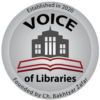Handbookہینڈ بک
A handbook is a practical guide that provides information on a particular subject or activity. It is a type of reference book that is designed to be used as a resource for performing specific tasks or for learning about a specific subject. Handbooks can be general, covering a wide range of topics, or specialized, covering a particular field or area of study. They may include instructions, tips, examples, and other types of information that are useful for learning or performing a particular activity. Handbooks are often used as reference tools and can be helpful for finding quick answers to specific questions or for learning how to do something.
